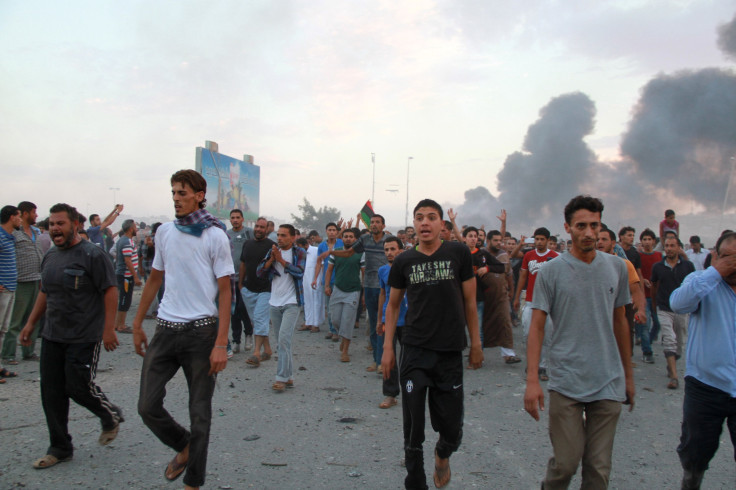Islamists And Soldiers Clash Near Libya's Benghazi Airport, 9 Dead 30 Wounded

Clashes between Islamist fighters and former Libyan general Khalifa Haftar in Benghazi on Tuesday left nine soldiers dead and at least another 30 wounded. Islamist fighters tried to seize the Benghazi airport, currently controlled by government forces, Reuters reported. As of Tuesday night, government forces aligned with Haftar’s forces were still in control of the airport.
“We are still controlling the airport," Haftar’s air defense commander Saqer al-Jouroushi told Reuters. His forces were using helicopters and jets from the former president Moammar Gadhafi-era.
Since Moammar Gadhafi’s ouster in 2011, Libya has been in an almost constant state of chaos. Libya's political state is now fractured into two pieces. On the one hand there is Libya Dawn, a group of Islamist militias that holds part of the country including Tripoli. On the other there is Gen. Khalifa Hifter and his group of fighters, which launched a crackdown on the Islamist fighters earlier this year. The government is tied to Hifter. Recent clashes between the two factions is threatening to push Libya over the edge and turn it into a failed state, experts said.
Last week, Islamist fighters kidnapped 25 soldiers and killed five others when the two factinos clashed at a Beghazi checkpoint, Reuters reported.
The U.S. closed its embassy completely earlier this summer and issued a warning for all U.S. citizens to leave the country immediately. At least nine governments followed suit, signaling a country descending into chaos.
"Libya's challenges are political and violence will not resolve them. Our focus is on the political process there. We believe outside interference exacerbates current divisions and undermines Libya's democratic transition,” U.S. State Department spokeswoman Jen Psaki said in August.
© Copyright IBTimes 2024. All rights reserved.






















